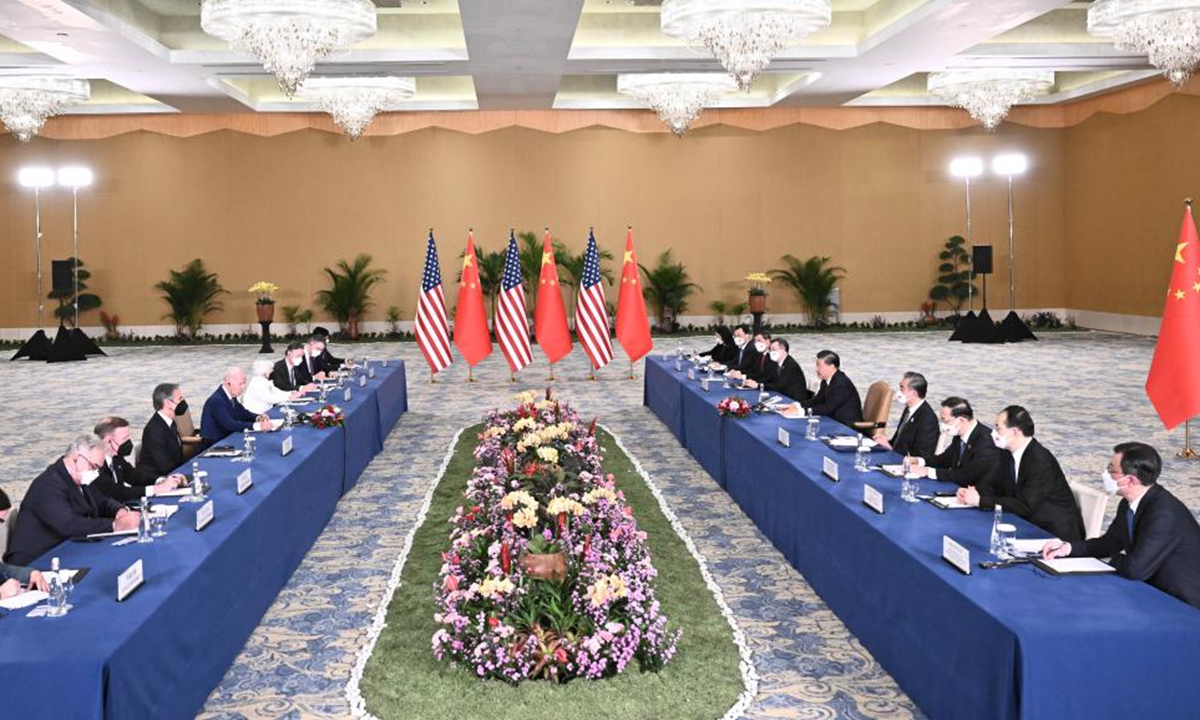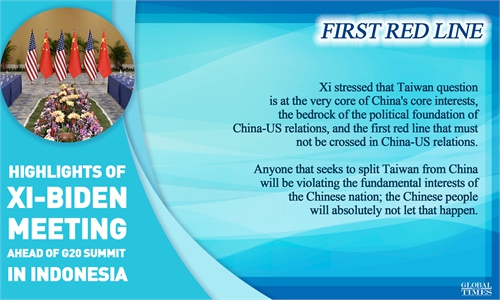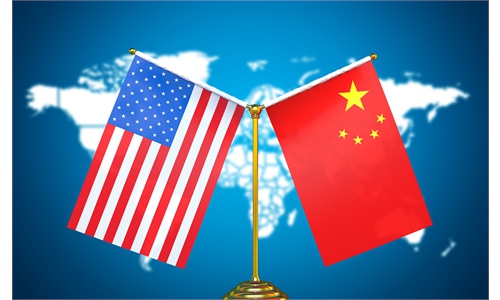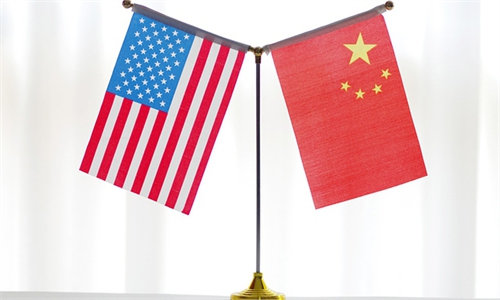US needs to understand reality of China’s development

Chinese President Xi Jinping meets with US President Joe Biden in Bali, Indonesia, Nov. 14, 2022. Photo: Xinhua
The last two names on the list of the US delegation to meet with President Xi Jinping were Rush Doshi and Jonathan Czin, both of whom are members of the Biden-chaired US National Security Council, which is responsible for China affairs. These two men should not be overlooked as we make predictions about US-China relations after the meeting. Having an understanding of their positions on China will help us make a more objective and accurate judgment.US policy toward China is often made by a team, and how the "leading actors" of that team views China is crucial.
US-China relations in recent years have been on a downward spiral to a dangerous stage, and need to "build a floor."
The key is that Washington has changed its strategic orientation toward China, and what prompted this change is the strategists in charge of China affairs that the Biden administration relies on.
Doshi is one of them. It is not difficult to understand his basic determinations about China. In his book The Long Game: China's Grand Strategy to Displace American Order, published last June, China is identified as the greatest challenge the US has faced since the end of the Cold War. In his eyes, China is a country with a clear grand strategy to replace the US and subvert the US-dominated global order.
This view is reflected in the 2022 National Security Strategy report, released in October, in which China is identified as the greatest strategic challenge to the US and the only country with the intention and growing ability to reshape the international order.
Accordingly, Doshi proposed a basic strategy for Washington's response to China, which is to adopt an asymmetric competitive strategy to contain China's attempts to establish hegemony in its home region and to focus on countering China's efforts to achieve a reshaped international order in Asia and around the world. At the same time, the US should also pursue order building and reinvest in the foundations of the US global order that Beijing is currently trying to erode.
To put it bluntly, this means not only using US power, but also ganging up on China and leveraging the power of allies to squeeze China's space for development on all fronts. This is what Washington has been doing now.
If US national institutions and Congress follow this strategy, it will inevitably lead to a zero-sum game. It is inevitable that China and the world will feel more and more strongly that the US is treating China like an enemy.
It is only a stone's throw from setting up an opponent to motivate oneself to treating this opponent as a real enemy.
I am afraid that the Chinese, whether they are commoners or expert elites, feel that the US is placing China in a difficult position.
There are many reasons for this, but the following two are basic.
First, it does not see China's reality. Will a country that still needs a lot of effort to achieve common prosperity for its 1.4 billion people compete with the US for a hegemonic status?
The second is an archaic view of history at work. Western elites are still looking at the development of an Eastern power with the old experience of traditional state-to-state competition, according to the process of the rise of the West.
China and the US have different national conditions, different political systems, and different cultural traditions, etc, which, to condense, means that "China has a Chang'an Street" and "the US has a Wall Street." These two streets cannot be linked together or copied to each other, but it is difficult to understand why the different reasoning is different.
These are not new, and China has told the world thousands of times. But they just can't listen to it - it's not in their education from childhood, not in their worldview, or even their knowledge system.
What can be done? We have to rely on the facts of China's development to prove it.
If one of the main themes of global development in the 21st century is the game between the two great powers, China and the US, it also means the game between two views of development.
It is not a game where one side wants to replace the other, but a game to prove that human development is not a straight line, not just one roadmap, and that such a game will leave a wealth of practical experience and intellectual enlightenment for future generations.
As Doshi said, "the key to defeating an opponent's strategy is to first understand it." After the Xi-Biden meeting, it would be good for the world and for both China and the US, if US policymakers could take a breather on their wild ride, or stop to look in the right direction and think about the words of the Chinese leader.
It is often difficult for a major power to change an established strategy, but when that strategy goes in the wrong direction and fails to adjust in time, then the consequences will be heavy.
The author is a senior editor with People's Daily, and currently a senior fellow with the Chongyang Institute for Financial Studies at Renmin University of China. dinggang@globaltimes.com.cn. Follow him on Twitter @dinggangchina




